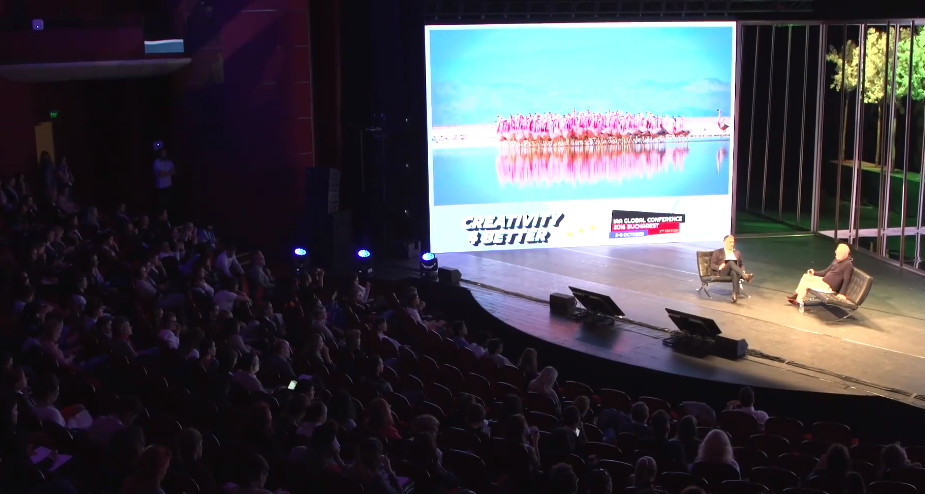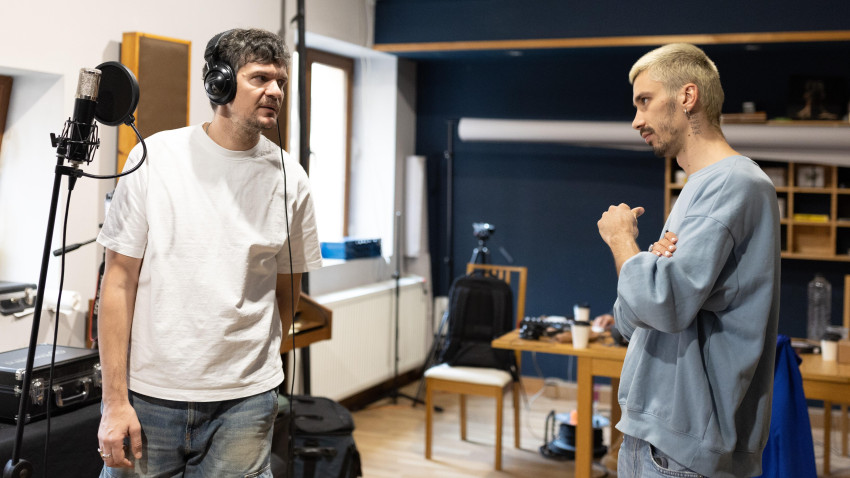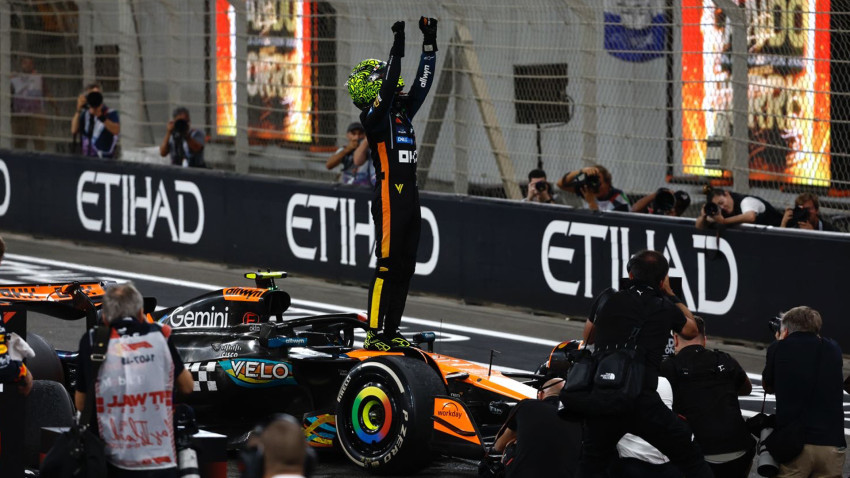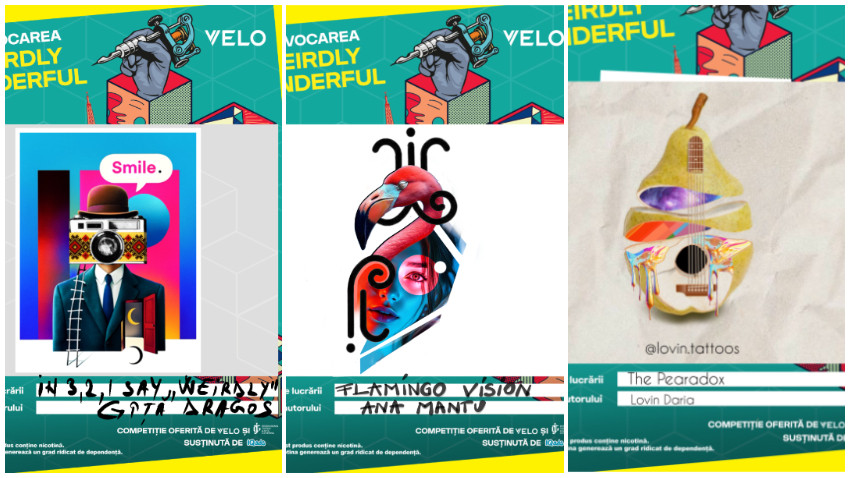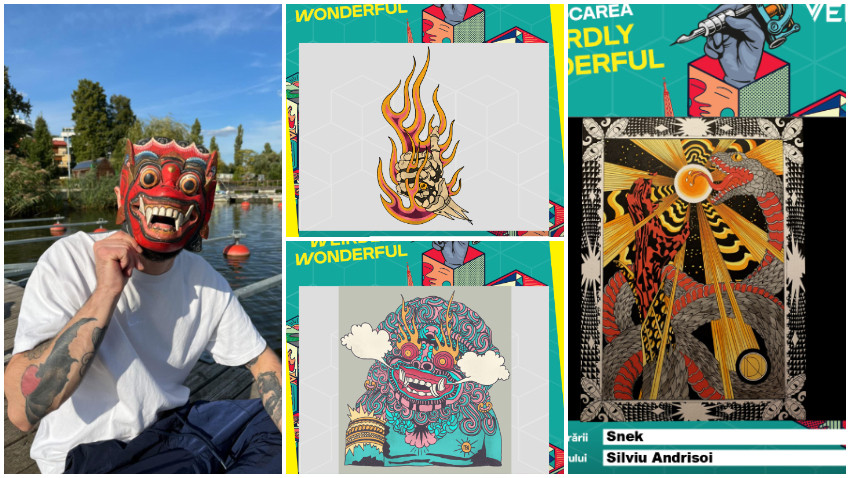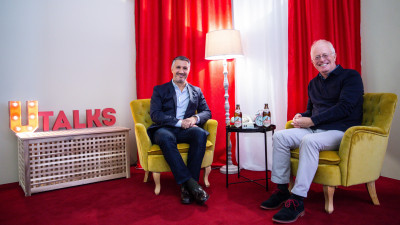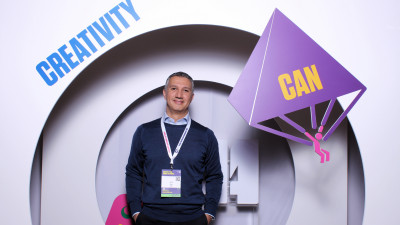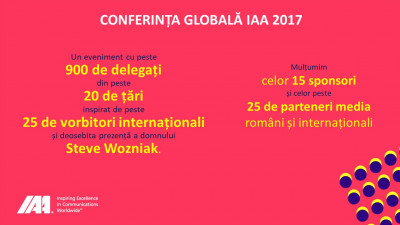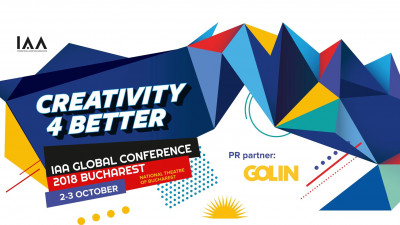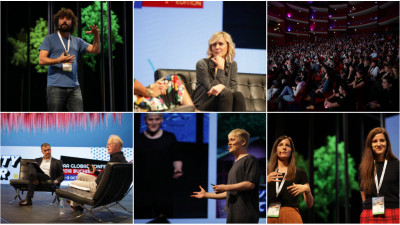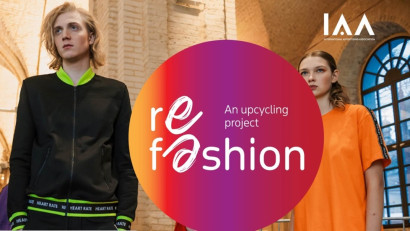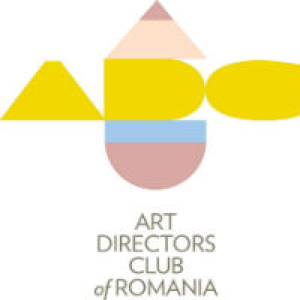What exactly has the power to bring together all sorts of people, fighting about everything goes on around them (welcome to 2018)? Well, a documentary on the tenderness of black rhinos or a movie about hatching turtles might do the trick.
These are just two examples mentioned by Michael Gunton in a talk with Errol Baran (SVP Business Development and Innovation, BBC Advertising) on the Bucharest National Theatre stage, during Creativity4Better, a conference organised by IAA Romania in Bucharest.
Michael Gunton is Creative Director of the BBC Natural History Unit and author of Planet Earth II, part two of an Emmy award-winning TV series with record-breaking audiences, presented by David Attenborough.
So, how can you bring people together, in front of the same screen, when everyone is busy with their own smaller screens? We spoke to Michael Gunton and Errol Baran about regaining audiences, media and innovation. We covered the human fascination with nature when actual people keep moving further away from it and, also, the debate on who will win in the future confrontation between people, nature and technology.
Media challenges in 2018
Michael Gunton: As a documentary filmmaker, I think the biggest challenges in media today are simply that there are so many opportunities, so much choice. How to break out, how to stand out from the others, how to draw your audiences? What's interesting in the work I do is that it looks at the world differently. It's a holistic approach that observes the world as it is: inhabited not only by humans, but by all sorts of other creatures.
If you tell these stories in an objective way, audiences won't connect. They want emotional experiences, they want to care, to be immersed in the content. So, we used some drama approaches to make this show stand out. If you're ambitious, if you're big about it - and, also, rigorous about the way you operate - then you will stand out and you will succeed.
Planet Earth is for public service, for BBC, but the programme is funded by international partners. And they enjoyed the fact it has a public service quality and scale. The response of the audiences, the success, the impact is what commercial broadcasters would give their right arm for.
Errol Baran: Audiences are fragmented. But some things won't ever change: the 24 hour day and the 7 day week. You have to not only make sure you have a relevant, authentic platform, but that it also stands out. In every media organisation you must have something that offers experience, something different from everyone else's DNA. It all flows back into the concept of innovation. If you stop innovating, you are left behind.
Innovate, innovate! But how?
Michael Gunton: I think innovation is a buzz word. A lot of people don't know what it means. We know what it means. You may think you're innovating, but does the audience think that? That's the key. Because you can say "I'm an innovator, I'm an innovator", but people see the truth, that you're doing the same thing.
To succeed is to give people a little of what they expect (and they will think "oh, that's good, I know and like this"), but then you turn it around, you give it a twist. And that's when innovation comes.
Sometimes it works. Planet Earth is a pretty good example. The format isn't unlike things we've done before, but the innovation consists of miniaturising the camera and getting closer to the subject. I liked what I was getting in the past, but now we're giving it a new flavour - and that's innovation.
The public
Michael Gunton: Audiences now seek to engage with your programme on their own terms and schedules. They want to access your programme when they're ready. BBC Reel is exactly that – all films on multiple platforms. That is a challenge not only for the BBC, but for everyone. You can stand out through great content, but the management of that remains a challenge.
There's a tiredness in the audience. And there are 2 types of approaches. Towards the small audience, where you deliver 100% what they want - the niche approach, which can be very succesful. Then, there's the Holy Grail, where you produce something that everybody wants. That's rare.
Not only grandmothers watch Planet Earth together with their grandsons; 15 year-olds watch it with their friends. What's more, they're saying "Let's all get together tonight, bring some beers and watch it together". And this is so unusual. Because now everyone is doing 'this and that', they're captive in their little phones. One thing I am very proud of is that they're dropping their screens and look up to think about their place in the world.
This makes a huge difference, I think, for society. Partly because people don't think of their own place in society. And there are very few shows that manage to influence in that direction. That bring people together to share a moment on TV.
Who will win
Michael Gunton: Mother Earth will win. The Planet will always win. If we're getting on a time machine and come back here about 10 million years, the planet will still be here. We won't. It will be very different, but the planet is a powerful force.
I'm very optimistic about the world, but the realities of what is happening in nature are shocking. In the 30 years that I've been doing this, I've never seen anything similar. And what's so shocking is that it's not a gradual decay, it's happening and no one is noticing; later on, everyone will be saying, "God, where has all the wilderness gone?".



